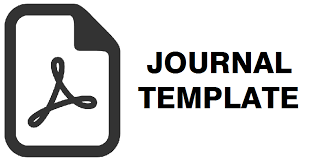The Challenge and Potential of the Future of Education in Indonesia: Obstacles in Implementing Blended Learning Methods in Social Studies Subjects in Undeveloped Areas Towards a More Inclusive Education Solution
DOI:
https://doi.org/10.35719/hrtg.v5i1.120Keywords:
Educational Challenges, Future Potential, Blended Learning, Disadvantaged Areas, Inclusive Education SolutionsAbstract
Education is crucial for the development of a country. Student academic achievement is one of the key criteria for evaluating the quality of the education system. In the current era of globalization and rapid technological advancement, learning methods have become highly important in enhancing student academic performance. The objective of this research is to evaluate the challenges and future potential of education in Indonesia, as well as the obstacles in implementing blended learning methods in underserved areas towards a more inclusive education solution. This study employs a qualitative methodology, with data collection methods including in-depth interviews, observations, and documentation.Subsequently, data analysis is conducted in four stages: collection, reduction, presentation, and conclusion drawing. The researchers found that blended learning is not effective in improving student academic performance. Out of 31 interviewed students, 26 expressed that, due to a lack of internet access or information devices, blended learning methods could not enhance their overall academic achievement. Additionally, the average grades of students indicate that the average scores of blended learning tend to be lower than those of conventional learning methods.There are also challenges in using this method, particularly in underserved areas, such as: 1) limited access to technology; 2) difficulty in self-learning; 3) challenges in visual communication; 4) difficulties in addressing technical errors; and 5) lack of access to additional learning resources. Solutions to these challenges include the use of alternative methods such as offline lessons or mobile devices, with support and assistance from the government or educational institutions. Offering early training to students and teachers to support online discussion forums where students can ask questions and share technical issues is also suggested.The implications highlight the need for strengthening, training, and providing access to technology, especially in underserved areas, to support even progress in education.
References
Adri, F. M., & Giatman, M. (2021). Manajemen pembelajaran pada masa pandemi covid-19 berbasis blended learning. 6(1), 110–118.
Ardiansyah, Risnita, & Jailani, M. S. (2023). Teknik Pengumpulan Data Dan Instrumen Penelitian Ilmiah Pendidikan Pada Pendekatan Kualitatif dan Kuantitatif. Jurnal IHSAN?: Jurnal Pendidikan Islam, 1(2), 1–9. https://doi.org/10.61104/ihsan.v1i2.57
Berita Update. (2020). Teknik pengumpulan Data 1. Metode Observasi (Issue 2504, pp. 1–9).
Darmalaksana, W. (2020). Metode Penelitian Kualitatif Studi Pustaka dan Studi Lapangan. Pre-Print Digital Library UIN Sunan Gunung Djati Bandung, 1–6.
Endah Wulantina, S. M. (2019). Persepsi Peserta Didik terhadap Metode Blended Learning dengan Google Classroom. Jurnal Inovasi Matematika, 1(2), 110–121. https://doi.org/10.35438/inomatika.v1i2.156
Hasil, M., Siswa, B., Pendidikan, J., Informasi, T., & Teknik, F. (2021). EduTIK: Jurnal Pendidikan Teknologi Informasi dan Komunikasi Volume 1 Nomor 3, Juni 2021. 1, 268–275.
Idris, H. (2011). Pendahuluan Pembelajaran berbasis blended learning dimulai sejak ditemukan komputer , walaupun sebelum itu juga sudah terjadi adanya kombinasi ( blended ). Terjadinya pembelajaran awalnya karena adanya tatap muka dan interaksi antara pengajar dan pebelaja. 5(1), 61–73.
Indarta, Y., Ambiyar, A., Samala, A. D., & Watrianthos, R. (2022). Metaverse: Tantangan dan Peluang dalam Pendidikan. Jurnal Basicedu, 6(3), 3351–3363. https://doi.org/10.31004/basicedu.v6i3.2615
Indriani, D. (2019). PENGARUH MODEL BLENDED LEARNING TERHADAP MOTIVASI DAN PRESTASI BELAJAR. 3, 851–854.
Keguruan, F., & Pembelajaran, E. (2021). Jurnal Edusciense Jurnal Edusciense. 8(2), 14–22.
Kundu, A., & Bej, T. (2021). Time to Achieve?: Implementing Blended Learning Routines in an Indian Elementary Classroom. https://doi.org/10.1177/0047239520984406
Minhas, W., White, T., Daleure, G., Solovieva, N., & Hanfy, H. (2021). Establishing an Effective Blended Learning Model: Teacher Perceptions from the United Arab Emirates. SAGE Open, 11(4). https://doi.org/10.1177/21582440211061538
Mujtahidin, M., & Oktarianto, M. L. (2022). Metode Penelitian Pendidikan Dasar: Kajian Perspektif Filsafat Ilmu. TERAMPIL: Jurnal Pendidikan Dan Pembelajaran Dasar, 9(1), 95–106. https://doi.org/10.24042/terampil.v9i1.12263
Nuraeni, R., Mulyati, S., Putri, T. E., Rangkuti, Z. R., Pratomo, D., Ak, M., Ab, S., Soly, N., Wijaya, N., Operasi, S., Ukuran, D. A. N., Terhadap, P., Sihaloho, S., Pratomo, D., Nurhandono, F., Amrie, F., Fauzia, E., Sukarmanto, E., Partha, I. G. A., … Abyan, M. A. (2017). No ????????????????????? ?????????????????Title. Diponegoro Journal of Accounting, 2(1), 2–6. http://i-lib.ugm.ac.id/jurnal/download.php?dataId=2227%0A???%0Ahttps://ejournal.unisba.ac.id/index.php/kajian_akuntansi/article/view/3307%0Ahttp://publicacoes.cardiol.br/portal/ijcs/portugues/2018/v3103/pdf/3103009.pdf%0Ahttp://www.scielo.org.co/scielo.ph
Rachmah, H. (2019). Blended Learning: Memudahkan Atau Menyulitkan? Prosiding Seminar Nasional Fakultas Ilmu Sosial Universitas Negeri Medan, 3, 673–679. http://semnasfis.unimed.ac.id2549-435x
Raya, F., & Kusuma, F. (2020). Kajian pembelajaran blended learning. 1–10.
Siboro, A., Zega, L. Z., & Purba, A. (2022). Pengaruh Model Blended Learning Berbasis Lms (Learning Management System) Terhadap Hasil Belajar Siswa Sma. Jurnal Penelitian Fisikawan, 5(1), 1–8.
Suana, W., & Raviany, M. (2019). BLENDED LEARNING BERBANTUAN WHATSAPP?: PENGARUHNYA TERHADAP KEMAMPUAN BERPIKIR KRITIS DAN KEMAMPUAN PEMECAHAN MASALAH. 5(2), 37–45.
Suni Astini, N. K. (2020). Tantangan Dan Peluang Pemanfaatan Teknologi Informasi Dalam Pembelajaran Online Masa Covid-19. Cetta: Jurnal Ilmu Pendidikan, 3(2), 241–255. https://doi.org/10.37329/cetta.v3i2.452
Yeou, M. (2016). An Investigation of Students ’ Acceptance of Moodle in a Blended Learning Setting Using Technology Acceptance Model. https://doi.org/10.1177/0047239515618464
Downloads
Published
How to Cite
Issue
Section
License
Copyright (c) 2025 heritage

This work is licensed under a Creative Commons Attribution-ShareAlike 4.0 International License.





